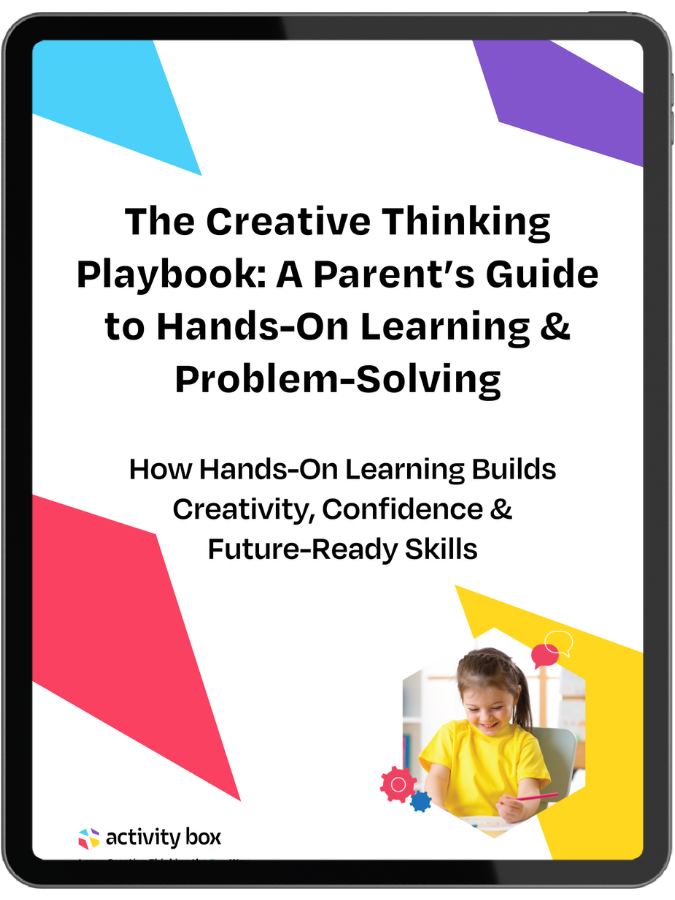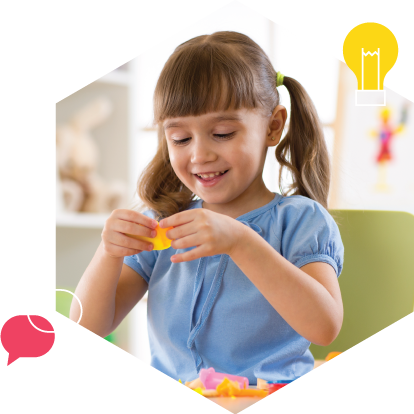
Why Imaginative Play is Essential for Cognitive Growth in Kids
Key Takeaways
| Aspect | Summary |
| Why This Topic Matters | Imaginative play strengthens cognitive flexibility, creativity, and problem-solving skills. |
| How Role-Playing Enhances Intelligence | Role-play allows children to practice decision-making, memory retention, and adaptability. |
| The Science of Storytelling | Narratives enhance verbal skills, logical thinking, and emotional intelligence. |
| Symbolic & Fantasy Play | Encourages abstract thinking and prepares children for real-world learning. |
| Practical Applications | Parents and educators can incorporate storytelling and pretend play into daily learning. |
Why Imaginative Play is Essential for Brain Development
Did you know that imaginative play helps children develop cognitive flexibility, problem-solving skills, and emotional intelligence? Research shows that pretend play, storytelling, and role-playing enhance memory, logical thinking, and communication skills.
This article explores how imaginative play shapes intelligence and how parents and educators can use it to support a child’s cognitive growth.
📖 Related Read: How Creative Play Enhances Emotional Intelligence
What is Imaginative Play?
Imaginative play, also called pretend play or symbolic play, is when children create make-believe scenarios, role-play characters, and use objects in creative ways.
Examples of Imaginative Play
- Role-Playing – Acting as a doctor, teacher, or superhero.
- Storytelling – Creating narratives using toys, dolls, or drawings.
- Fantasy Play – Pretending to explore outer space or fight dragons.
- Symbolic Play – Using a banana as a phone or a box as a spaceship.
🔍 Example:
A child pretending to be a chef in a play kitchen learns about organization, sequencing, and communication while enhancing creativity and decision-making.
📖 External Source: Learn more about Daniel Goleman’s EQ model.
🔬 Research Insight:
According to Psychology Today, early pretend play enhances a child’s capacity for cognitive flexibility and creativity, strengthening their ability to think abstractly and solve complex problems.
The Cognitive Benefits of Imaginative Play
How Role-Playing Strengthens Brain Development
Imaginative play activates multiple cognitive functions, including:
- Memory retention – Remembering story details and character roles.
- Decision-making skills – Making choices in pretend scenarios.
- Problem-solving abilities – Thinking through obstacles creatively.
🔬 Research Insight:
A study from the National Association for the Education of Young Children (NAEYC) found that role-playing improves executive function skills, helping children develop better focus and self-regulation.
📖 External Source: Read the full NAEYC study.
The Science Behind Storytelling and Cognitive Growth
Storytelling allows children to connect ideas, develop verbal skills, and understand cause-and-effect relationships.
🔍 Example:
When children make up stories about their toys, they practice sequencing events and structuring narratives, which strengthens language and logical reasoning.
📖 Related Read: The Link Between Creativity and Childhood Development
🔬 Additional Research:
According to Kids First, pretend play provides a safe space for children to express feelings, build resilience, and develop self-regulation, which are key contributors to cognitive development.
How Symbolic Play Encourages Abstract Thinking
Symbolic play helps children understand complex concepts by representing them with simple objects.
🔍 Example:
A child pretending that a box is a spaceship is developing spatial awareness, problem-solving skills, and abstract reasoning.
Symbolic Play Activities That Boost Cognitive Skills:
- Building pretend worlds with household objects.
- Role-playing as characters from books or movies.
- Setting up a play store with toy money to practice math skills.
📖 Related Read: Cognitive Benefits of Creative Play
Long-Term Learning Benefits of Imaginative Play
How Fantasy Play Prepares Kids for Real-World Learning
Fantasy play allows children to:
- Experiment with different perspectives – Builds empathy and emotional intelligence.
- Strengthen creativity and innovation – Helps with divergent thinking.
- Develop resilience – Encourages trying different approaches when facing a challenge.
🔍 Example:
A child pretending to run a pet shop learns social skills, business concepts, and responsibility in a fun and engaging way.
📖 Explore More: ActivityBox Monthly Creative Thinking Program
Want even more brain-boosting activities?
Discover easy, screen-free ways to help your child grow creativity and confidence at home.
How Parents & Educators Can Encourage Imaginative Play
Encouraging Role-Play at Home
- Provide dress-up clothes, props, and open-ended toys.
- Ask open-ended questions like, “What happens next in your adventure?”
- Join in the play and expand their narratives.
🔍 Example Activity:
Set up a pretend restaurant where kids take orders, cook play food, and serve customers.
Classroom Strategies for Enhancing Imaginative Play
- Encourage collaborative art projects to build teamwork.
- Use puppets or dolls to demonstrate handling conflicts.
- Play “emotion matching” games where children match facial expressions to emotions.
📖 Explore More: ActivityBox Monthly Creativity Kits for Schools
Key Takeaways and Next Steps
- Imaginative play builds cognitive flexibility, memory, and problem-solving skills.
- Role-playing and storytelling strengthen language development and social intelligence.
- Symbolic play encourages abstract thinking and prepares kids for real-world learning
👉 Support your child’s cognitive growth with ActivityBox’s creativity-focused learning kits!
FAQs About Early Childhood Development
Q: How does imaginative play help cognitive growth?
A: Imaginative play strengthens problem-solving, memory, and abstract thinking, helping children develop flexible learning skills.
Q: What is an example of pretend play that boosts intelligence?
A: Role-playing as a shopkeeper or doctor helps kids practice math, communication, and problem-solving.
Q: How does storytelling improve cognitive development?
A: Storytelling enhances language skills, logical thinking, and emotional intelligence by helping children connect ideas.
Q: What are some activities that encourage imaginative play?
A: Dramatic role-playing, open-ended storytelling, and symbolic play with everyday objects all foster creativity.
Still have more questions?
We’re here to help! Contact us →

Get the Free Creative Thinking Playbook
Learn how hands-on play helps your child develop problem-solving, creativity, and confidence, without screen time or prep.
Hands-on, screen-free activities
Printable planner included
Stress-free and fun for parents
Expert-designed, child-approved
